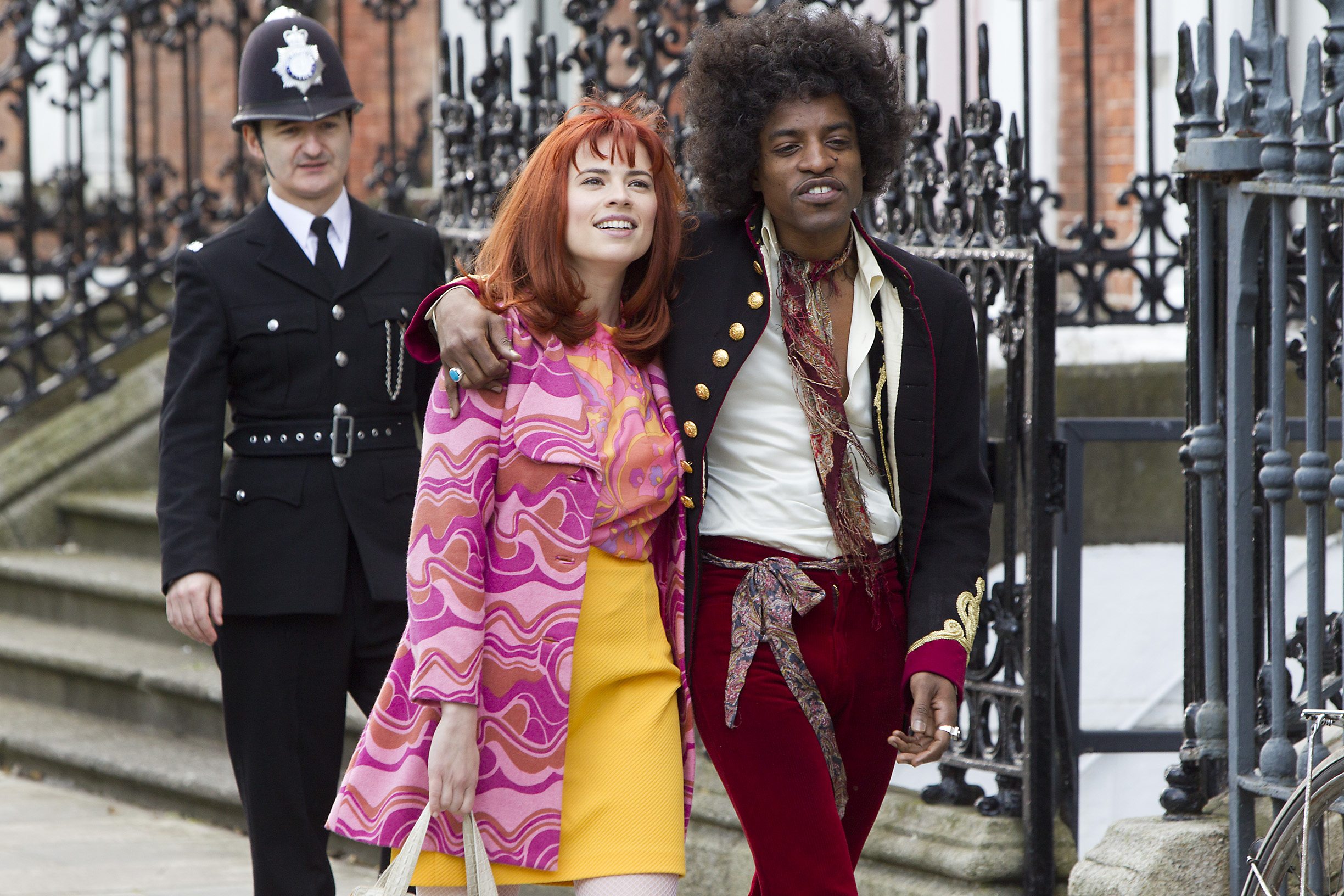To its credit, this is an inconclusive, narrowly focused biopic sure to confound fans of Jimi Hendrix. It forgoes his Seattle origins (but for a phone call) and stops short of his global breakthrough at the 1967 Monterey Pop Festival. John Ridley’s movie mostly takes place in a few smoky clubs and rooms in New York and London. Hendrix himself flits through these rooms like an enigmatic wisp, only a rumor of greatness, a guy who refuses to be pinned down (or to love just one bird—even the woman who secures his big break). He’s an ingrate and maybe a bastard. He’s mercurial, diffident, soft-spoken—nothing like his confident stage presence, which exists more in film than living memory.
You want Hendrix the rock god? There are the later albums for that, albums with the hits that Ridley—who recently won an Oscar for writing 12 Years a Slave—couldn’t license from the Hendrix estate. Instead we get the groping, tentative progress toward guitar-hero status. Underconfident Jimi is still going by Jimmy James, a mere backup player, when Linda Keith (Imogen Poots) talent-spots him in a New York club. She’s a model and the girlfriend of Keith Richards (Ridley has a lot of fun with this), very connected, and a blues connoisseur. Hendrix (Andre Benjamin) is flattered by the attention but wary of the limelight. He’s resistant to her suggestion that he sell himself, meaning put forth a bold stage persona—be a frontman who sings—unlike his shy nature. Go to London? he asks. That’s like going to the moon. But she’s got money, and he soon obtains a passport.
The era and suggested locations here (actually Ireland) recall the recent Inside Llewyn Davis. Hendrix plainly idolizes Dylan, as everyone did, and the movie buzzes along enjoyably with New Wave cutting and rambling conversational turns. (All the hippie talk, only 50 years old, now sounds like a lost language.) Over in London, too, it’s a time of new freedom and possibility: Hendrix likes talking about science fiction (he’s a reader) and listens with polite skepticism when a black radical (Ruth Negga) lectures him to be more militant—not to please the Lindas of this world.
Yet Hendrix remains fundamentally ambivalent to his many advisors (Linda gets him a manager and even introduces him to Andrew Loog Oldham). What kind of music should he play? What’s his musical identity—blues or rock? “I don’t want to get caught up in those labels,” he says. Hendrix seems to get along only with his fellow musicians; and the movie’s last third shows that he’s got some ugly issues with women. (Hayley Atwell plays Kathy, who becomes Linda’s rival.) Ridley (see SIFF interview) shows us the good and the bad in Hendrix, the charmer and the brooder, but still one has to ask: If he’s unpacking the myth, putting the microscope to this one short period, what does he hope to reveal? Was playing guitar the most or the least interesting thing about Hendrix? Ridley can’t seem to find a position on that. Nor can the finely nuanced Benjamin, because of the script, get a lock on his elusive character. It’s frustrating, but it’s also a rather bold approach to the biopic genre. Here is a man who can’t be captured or defined, only suggested. Opens Fri., Sept. 26 at Sundance Cinemas and Pacific Place. Rated R. 118 minutes.
bmiller@seattleweekly.com








